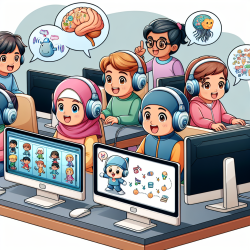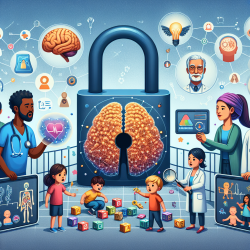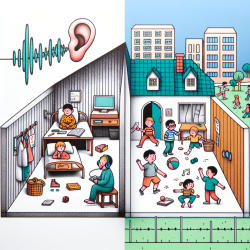Introduction
In the realm of speech-language pathology, data-driven decisions are pivotal in crafting effective interventions and achieving desired outcomes. However, the journey from research to practice is often fraught with challenges, especially when it involves community-based participatory research (CBPR) and institutional review boards (IRBs). This blog post delves into the insights from the research article titled "Environmental health and justice and the right to research: institutional review board denials of community-based chemical biomonitoring of breast milk," highlighting how practitioners can enhance their skills and advocate for environmental justice.
Understanding the Research
The research focuses on the Breast Milk Pilot Study (BMPS), initiated by the Alaska Community Action on Toxics (ACAT) in response to community requests for biomonitoring research. Despite community support and funding, the study faced repeated denials from the Alaska Area IRB. The research explores the implications of these denials on health inequalities, environmental justice, and research ethics, particularly for indigenous communities.
Key Takeaways for Practitioners
- Community Engagement: Practitioners should actively involve community members in the research process, ensuring that the study addresses their concerns and priorities. This approach fosters trust and enhances the relevance of the research.
- Overcoming IRB Challenges: Understanding the IRB process and preparing thoroughly can help navigate potential roadblocks. Practitioners should engage in open dialogues with IRBs to address ethical concerns and emphasize the study's significance for community health.
- Advocacy for Environmental Justice: Practitioners can play a crucial role in advocating for policies that address environmental health disparities. By leveraging research findings, they can support community efforts to demand accountability and regulatory changes.
Encouraging Further Research
The challenges faced by the BMPS highlight the need for further research into the ethical implications of biomonitoring and the role of IRBs in community-based research. Practitioners are encouraged to explore these areas to enhance their understanding and contribute to the development of more inclusive and ethical research practices.
Conclusion
By integrating the insights from this research, practitioners can improve their skills and advocate for better health outcomes in their communities. The journey may be challenging, but the potential for positive change is immense. To read the original research paper, please follow this link: Environmental health and justice and the right to research: institutional review board denials of community-based chemical biomonitoring of breast milk.










